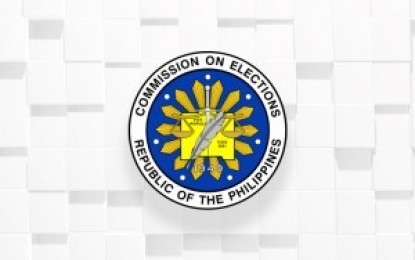
MANILA – The Commission on Elections (Comelec) on Wednesday reminded registered voters against vote-buying and vote-selling.
In a memorandum issued by Comelec Commissioner Aimee Ferolino, chairperson of Task Force Bigay, the voting public was advised about the consequences of committing any act in violation thereof.
It also directed the law enforcement agencies to strictly enforce the statutory prohibition against vote-buying and vote-selling.
Section 261(a) of Batas Pambansa Bilang 881, otherwise known as the Omnibus Election Code (OEC), penalizes as election offense the act of vote-buying and vote-selling.
The violation is defined as any person who gives, offers, or promises money or anything of value, gives or promises any office or employment, franchise or grant, public or private, or makes or offers to make an expenditure, directly or indirectly, or cause an expenditure to be made to any person, association, corporation, entity, or community in order to induce anyone or the public, in general, to vote for or against any candidate or withhold his vote in the election, or to vote for or against any aspirant for the nomination or choice of a candidate in a convention or similar selection process of a political party.
Likewise, any person, association, corporation, group or community who solicits or receives, directly or indirectly, any expenditure or promise of any office or employment, public or private.
“The election offense of vote-selling is committed when the following elements are present: any person, association, corporation, group or community; solicits or receives, directly or indirectly, any expenditure or promise of any office or employment public or private, and the purpose is to induce anyone or the public, in general, to vote for or against any candidate or withhold his vote in the election, or to vote for or against any aspirant for the nomination or choice of a candidate in a convention or similar selection process of a political party.
Also considered as an element of such crime is the payment of permit-to-win (PTW) and permit-to-campaign (PTC).
“As per Comelec Resolution No. 22-0179, the payment PTW and Permit-to-Campaign PIC to the Communist Party of the Philippines-New People's Army-National Democratic Front (CPP-NPA-NDF) and its allied organizations are covered by the law prohibiting vote-buying and vote-selling. Thus, any candidate enhancing his or her candidacy by paying PTW and PIC to the CPP-NPA-NDF and its allied organizations may be prosecuted under Section 261 of the OEC,” the memorandum said.
“In addition, the extortion activities may also be considered as violations of Section 4 of Republic Act (RA) No. 101681 and Section 12 of RA No. 114792,” it added.
Those who are criminally liable for election offenses are the principals, accomplices, and accessories, as defined in the Revised Penal Code.
“If the one responsible be a political party or an entity, its president or head, the officials and employees of the same, performing duties connected with the offense committed and its members who may be principals, accomplices, or accessories shall be liable, in addition to the liability of such party or entity. (Section 263, OEC),” it said.
“Any person found guilty of any election offense under this Code shall be punished with imprisonment of not less than one year but not more than six years and shall not be subject to probation. In addition, the guilty party shall be sentenced to suffer disqualification to hold public office and deprivation of the right of suffrage. If he is a foreigner, he shall be sentenced to deportation which shall be enforced after the prison term has been served,” the memorandum added.
Any political party that would be found guilty shall be sentenced to pay a fine of not less than PHP10,000, which shall be imposed upon such party after criminal action has been instituted in which their corresponding officials have been found guilty.
The Comelec will also establish a Citizen Complaint Center (CCC) that will serve as a communication channel where citizens can report incidents of vote-buying and vote-selling that they have personally witnessed.
The complaints may be filed personally or through the official email addresses of the local field offices, the Law Department of the Commission, or the offices of the provincial, city, and municipal prosecutors.
The local election offices shall submit to the Law Department of the Comelec a report of all vote-buying and vote-selling cases filed before the respective field offices.
In the same manner, the prosecuting arms of the Department of Justice (DOJ) shall submit a bi-weekly report of all cases of vote-buying and vote-selling filed before the respective local and national prosecution office. (PNA)
